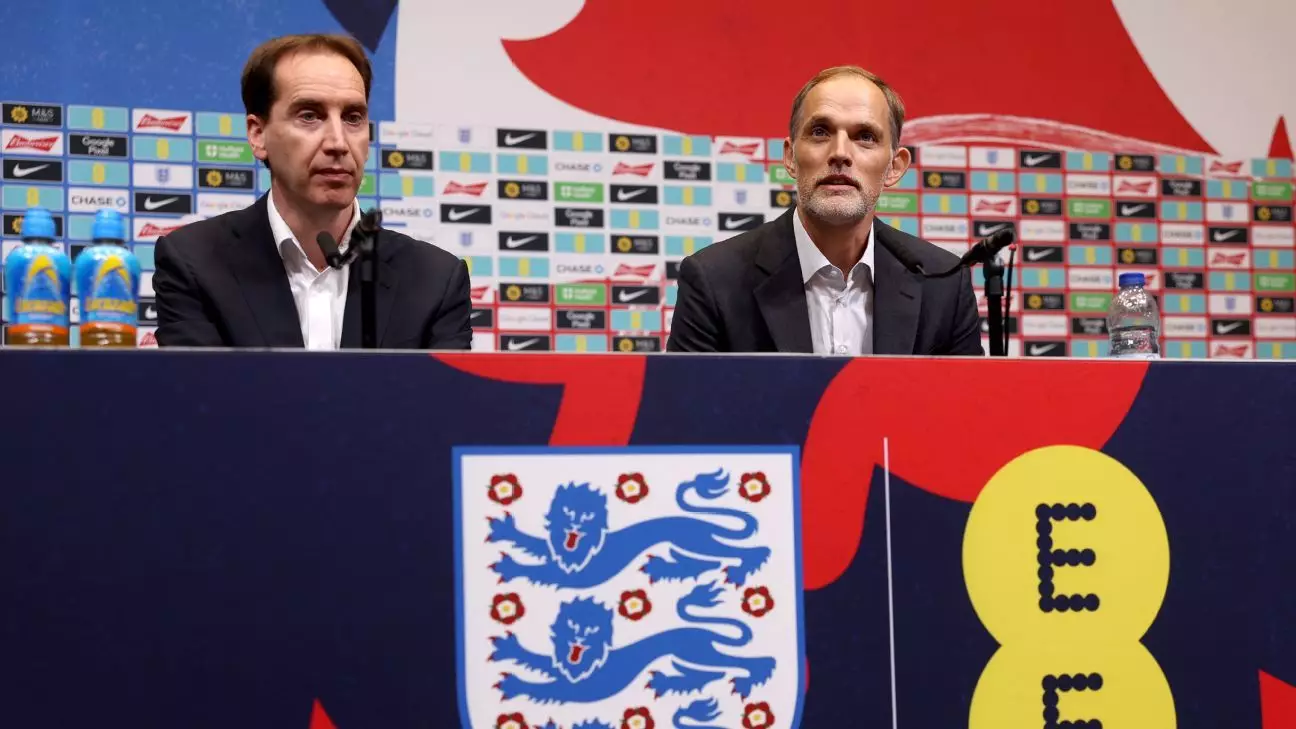The appointment of Thomas Tuchel as the head coach of the England national football team represents not only a significant career leap for the German tactician but also a potential shake-up in the coaching landscape, particularly at his former club, Chelsea. Tuchel, known for his tactical acumen and previous successes in club football, including a Champions League win with Chelsea, has started planning ahead as he gears up for his role beginning January 1. The dynamics of his backroom staff reflect both a desire for continuity and an insistence on excellence.
Building a Cohesive Team
A critical component of Tuchel’s strategy will involve selecting a well-rounded support team. His recruitment of Anthony Barry, previously an assistant coach under Tuchel at Chelsea and subsequently with the Portugal national team, reveals a commitment to continuity in coaching philosophies. Barry’s expertise in tactical training and analysis could prove invaluable as England aims to reclaim its status among football elites. During his first press conference, Tuchel emphasized maintaining a lean yet effective staff, highlighting his respect for the existing talent within the Football Association (FA).
Targeting Familiar Faces
As evidence of his strategic approach, sources have indicated that Tuchel is considering further additions from Chelsea’s ranks. Head of performance analysis, James Melbourne, has reportedly been approached, underscoring Tuchel’s intent to surround himself with individuals he trusts and has previously worked with. This choice could foster an environment of synergy, allowing for seamless communication and alignment of coaching philosophies. Additionally, the interest in goalkeeping coach Hilario is notable—another connection to Chelsea that reinforces Tuchel’s reliance on familiar figures.
Remarkably, Chelsea’s current management, led by Enzo Maresca, appears supportive of these potential transitions. Maresca’s statements suggest that the club recognizes the need for its staff members to pursue new opportunities if they wish. This open-door policy not only speaks to the current administration’s understanding of professional growth but also indicates a shift in how clubs manage talent, acknowledging that fostering career development can ultimately benefit all parties involved.
The ramifications of Tuchel’s strategic staff selections will not only affect the immediate future of the England national team but could also ripple through Chelsea and beyond. If successful, Tuchel’s model could be a blueprint for other national teams and clubs looking to optimize their coaching structures. The blend of loyalty and innovation in his coaching approach may usher in a new era for both the England team and the clubs from which he draws talent, proving that the right personnel can elevate a team’s performance to new heights.
Thomas Tuchel’s inaugural steps as the head coach of England are marked by deliberate moves towards assembling a competent and trusted staff while acknowledging the importance of existing expertise within the FA. As both Chelsea and England navigate this transitional period, the focus will remain on fostering environments that promote success and developmental opportunities.

Leave a Reply